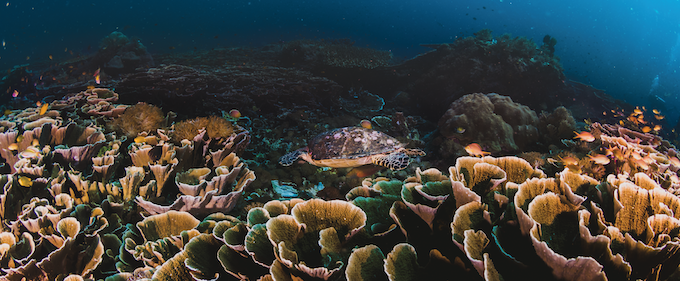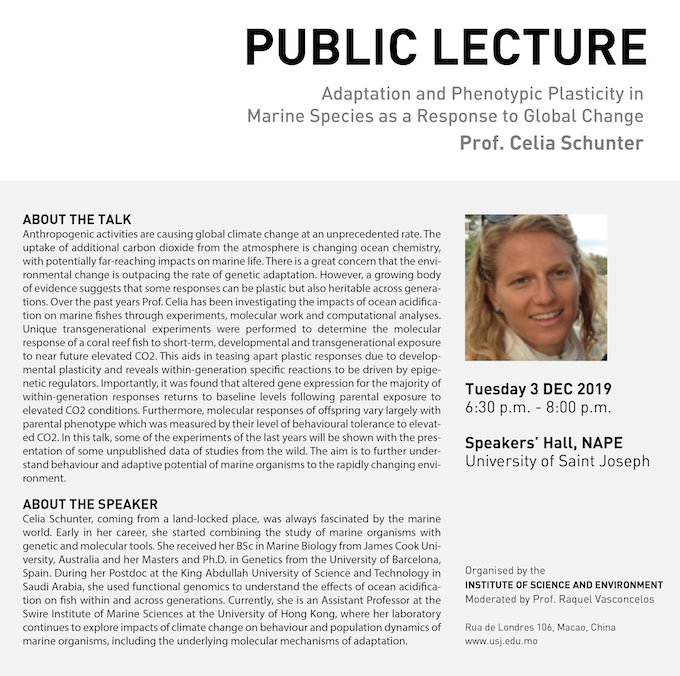Public Lecture: Adaptation and Phenotypic Plasticity in Marine Species as a Response to Global Change

Public Lecture: Adaptation and Phenotypic Plasticity in Marine Species as a Response to Global Change
03
Dec
On 3 December 2019, the Institute of Science and Environment is organising a public lecture titled “Adaptation and Phenotypic Plasticity in Marine Species as a Response to Global Change” by Prof. Celia Schunter.

ABOUT THE TALK
Anthropogenic activities are causing global climate change at an unprecedented rate. The uptake of additional carbon dioxide from the atmosphere is changing ocean chemistry, with potentially far-reaching impacts on marine life. There is a great concern that the environmental change is outpacing the rate of genetic adaptation. However, a growing body of evidence suggests that some responses can be plastic but also heritable across generations. Over the past years Prof. Celia has been investigating the impacts of ocean acidification on marine fishes through experiments, molecular work and computational analyses. Unique transgenerational experiments were performed to determine the molecular response of a coral reef fish to short-term, developmental and transgenerational exposure to near future elevated CO2. This aids in teasing apart plastic responses due to developmental plasticity and reveals within-generation specific reactions to be driven by epigenetic regulators. Importantly, it was found that altered gene expression for the majority of within-generation responses returns to baseline levels following parental exposure to elevated CO2 conditions. Furthermore, molecular responses of offspring vary largely with parental phenotype which was measured by their level of behavioural tolerance to elevated CO2. In this talk, some of the experiments of the last years will be shown with the presentation of some unpublished data of studies from the wild. The aim is to further understand behaviour and adaptive potential of marine organisms to the rapidly changing environment.
ABOUT THE SPEAKER
Celia Schunter, coming from a land-locked place, was always fascinated by the marine world. Early in her career, she started combining the study of marine organisms with genetic and molecular tools. She received her BSc in Marine Biology from James Cook University, Australia and her Masters and Ph.D. in Genetics from the University of Barcelona, Spain. During her Postdoc at the King Abdullah University of Science and Technology in Saudi Arabia, she used functional genomics to understand the effects of ocean acidification on fish within and across generations. Currently, she is an Assistant Professor at the Swire Institute of Marine Sciences at the University of Hong Kong, where her laboratory continues to explore impacts of climate change on behaviour and population dynamics of marine organisms, including the underlying molecular mechanisms of adaptation.









